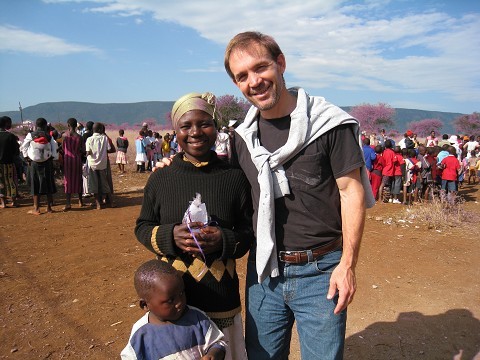By Seth Barnes, Executive Director
Adventures In Missions
 |
|||
|
|||
Let’s settle it once and for all: Short-term mission (STM) teams work – sometimes spectacularly. At the same time, the uneven results they can produce open the door to criticism.
The book of James says, “This is true religion-to help widows and orphans in their distress.” Jesus tells us, “Go into all the world spreading the good news.”
But, short-term missions can be too costly. Some may be overly ambitious, aspiring to pierce the darkness in a place like Romania, when it may be darker still in New York City.
Some critics say STM groups are on a kind of philanthropic sightseeing tour. Or, an STM team can be a negative experience for both long-term missionary and participant alike if the team is inadequately prepared.
The problem is not the idea of short-term missions, but the questionable way in which some are implemented.
1. No Preparation
The first car ever made was full of imperfections and bugs. Did its producers scrap it? No, they kept on improving it by making new models. So it is with short-term missions. Many of the original models that didn’t require much preparation don’t work well. Look at the latest models, which incorporate heavy doses of preparation.
2. No Prayer
Why do those of us in evangelical circles spend so much time organizing our work and so little time praying about it? We should work toward a goal of spending an hour in prayer for every two hours we spend planning a mission project.
After a mission, the fruit produced in the home churches is also noteworthy. STEM Ministries surveyed its project participants after they had returned home. Both prayer and gifts for missions doubled after a short-term mission. Prayer increases because people see in very practical ways that it works. It is an essential ingredient of STM projects.
3. No Jerusalem
Jesus said, “You shall be my witnesses in Jerusalem…and unto the ends of the earth.” Jerusalem represents our own backyard. It is counterproductive for a group to gear up every year for another glorious trip beyond our borders, but then slide back into the rut of feel-good ministry at home. Unless your team is willing to first invest in a local ministry, it has no business going overseas.
Begin with Jerusalem. See people through Jesus’ eyes. Compassion for the lost begins with those you see and touch every day.
4. No Ends-of-the-Earth
At the other end of the spectrum, those who are satisfied with nearby service projects never experience the incredible blessing of cross-cultural evangelism and church planting. A vast majority of the world’s full-time Christian workers minister in America, expending a disproportionate amount of resources on an increasingly cynical populace.
People ask why I prefer ministering in Latin America as opposed to the U.S. I tell them it’s because the fruit is so much greater there. Perhaps because the poor in places like Mexico are so absolutely destitute, they more readily embrace the Gospel.
5. No Stewardship
Short-term groups need to demonstrate stewardship in selecting projects. When leaders in our nation’s wealthier churches spend money on mission trips just because it’s available, they are criticized for lack of stewardship. Only groups composed of individuals who are actively considering a career in ministry should invest the kind of money required to fly to more expensive locations.
In general, it will cost much more to do an overseas mission project than it would cost national Christians to do the same ministry. If both groups competed for the same pool of money, this criticism would strike home. However, usually short-term missions tap a completely different pool of money. Whether the monies come from fund-raising events or simply a vacation budget, they tend to be over-and-above funds otherwise given to missions.
What is the value of developing a new generation of missionaries? By giving young people the opportunity to see God’s power working through them to bring hope to hopeless situations, they abandon their old self-centered dreams. They become Great Commission Christians. A majority of long-term missionaries start out on a short-term mission.
Mission committees can counter criticism of their stewardship by placing the primary responsibility for raising funds on all short-term candidates.
6. No Perspective
Often short-term mission teams have little understanding of the big picture. A great gulf of perspective isolates them from the long-term workers with whom they work.
A mission agency or missionary can impart their perspective by helping to prepare and lead the group. STM groups can be a distraction and an inconvenience to those missionaries who have teams thrust upon them. If a missionary does not have a vision for a team, then perhaps it is better to “just say no.”
| Information: | Call AIM toll-free at 1-800-881-2461 (In GA call 770-983-1060) to speak to a representative, or click here to email us! |








